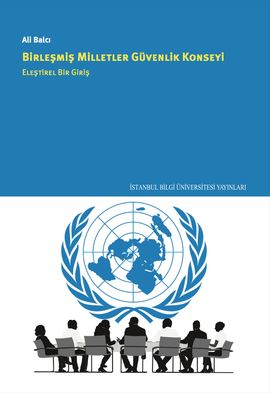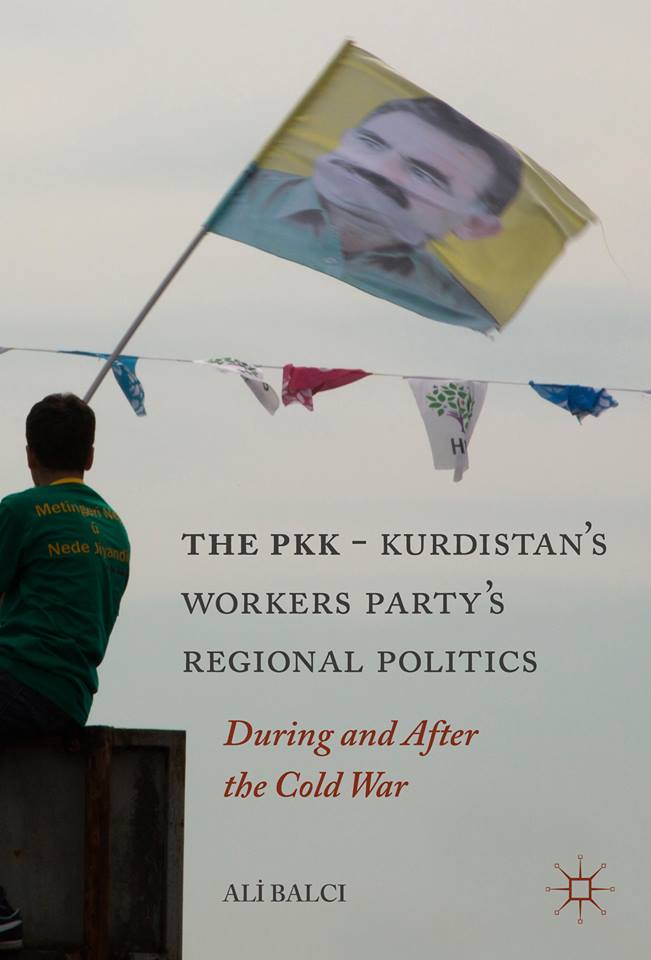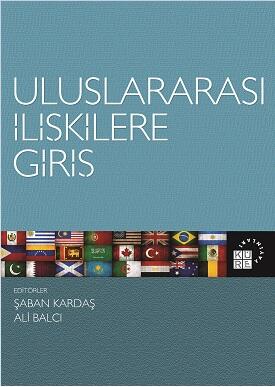Türkiye’deki Uluslararası İlişkiler bölümleri uzun süredir ciddi bir kriz içerisindeydi. COVID-19 kapanmalarının hemen ardından, 2021 yılında bu kriz kendisini açık bir şekilde gösterdi. Uluslararası İlişkiler bölümleri, öğrenci talebinin çok üzerinde kontenjan (arz) sunuyordu. Bu nedenle 2021 yılında mevcut kontenjanların ancak %65’i dolabildi. Üstelik bu doluluk, taban puanların oldukça düşmesine rağmen gerçekleşebildi. Örneğin 2022 yılında Türkçeden 1,5, matematikten 0,8 net yapan bir öğrenci Tokat Gaziosmanpaşa Üniversitesi “Siyaset Bilimi ve Uluslararası İlişkiler” bölümüne yerleşebildi. Yine, -2 matematik ve 4,5 Türkçe netiyle bir öğrenci İnönü Üniversitesi “Siyaset Bilimi ve Uluslararası İlişkiler” bölümü ikinci öğretim programına kayıt yaptırabildi. YÖK, bu akut sorun karşısında ilk adımı 2023 yılında attı ve ikinci öğretim programlarını kapattı.
Devamını okuyunOn 4 December 2025, Turkey’s Council of Higher Education (Yükseköğretim Kurulu, YÖK) announced its revised list of 20 research universities, a restructuring that saw Sakarya University promoted to the main list while Dokuz Eylül University was downgraded to candidate status (YÖK, 2025). Although YÖK employs a diverse set of criteria for these designations, publication quality remains the paramount determinant. Reliance on WoS, however, has long been scrutinized for two structural weaknesses: its vulnerability to predatory journals (Oviedo-García, 2021) and its inadequate coverage of Turkish-language scholarship (Furat and Yılmaz, 2023; Mongeon and Paul-Hus, 2016; Macháček and Srholec, 2022). While quantifying the impact of excluded vernacular scholarship remains methodologically elusive, the distortion caused by predatory publishing is amenable to correction. Accordingly, this paper focuses specifically on mitigating this first structural weakness to provide a more rigorous assessment of research quality.
During the same December meeting, YÖK signaled a strategic pivot, declaring that Scopus would replace WoS as the primary reference for future quality assessments. Yet, this announcement highlights a systemic uncertainty: the Turkish higher education system is struggling to identify a metric capable of reliably distinguishing high-impact science from low-quality publication volume. Merely migrating from one commercial index to another may not solve the underlying problem of predatory infiltration.
Devamını okuyunAbstract: The existing literature largely agrees that Russia and China actively bolster and protect authoritarian regimes as alternatives to liberal democracies. While empirical research predominantly focuses on economic and military aid as primary mechanisms, emerging studies on ‘leader visits’ reveal that great powers send visible, immediate, and robust signals of support to their protégés, especially against domestic and regional threats. Given that face-to-face interactions enable host leaders to more precisely discern their patrons’ intentions, we argue that leader visits constitute a critical strategy employed by Russia in its global efforts to bolster authoritarian durability. Our empirical results demonstrate that although domestic instability generally deters foreign official visits, domestic instability actually increases authoritarian regimes’ chances of attracting a Russian official visit. We also find that Russia’s visits to authoritarian regimes experiencing domestic turmoil are linked to its power competition with the United States, particularly following a series of democratic revolutions in Russia’s former protégés during the early 2000s. The findings underscore the strategic use of leader visits as a tool to bolster autocratic allies in times of global power competition, thereby advancing scholarship on authoritarian resilience. Policy implications include recognizing the geopolitical significance of diplomatic visits in signaling support for instable regimes and the need to incorporate such symbolic gestures into assessments of great power competition and authoritarian diffusion strategies.
For the draft text, CLICK
Devamını okuyun100 YEARS OF VISITS is a two-year TÜBİTAK-funded project (124R138) that investigates the high-level leader visits of Türkiye. It primarily aims to create a comprehensive dataset covering all foreign visits made by Turkish leaders—presidents, prime ministers, and foreign ministers—between 1923 and 2023, as well as visits to Türkiye by foreign high-level leaders such as kings, presidents, prime ministers, and foreign ministers. Through this dataset, the project seeks to provide empirical support for existing assumptions about Turkish foreign policy, revise these assumptions where necessary, or develop and test new hypotheses.
Devamını okuyunDIPLOMATIC LINKS is a two-year TÜBİTAK-funded project (123K254) that investigates the high-level foreign visits of Middle Eastern countries between 1989 and 2023. It aims to uncover the patterns of visits made by the leaders of Middle Eastern countries, including Turkey, and to distinguish the dynamics that determine these visits for both individual countries and groups of countries. In this context, a comprehensive dataset detailing visits conducted by the leaders of regional countries beginning in 1990 will be assembled, encompassing specifics such as the date of the visit, its duration, and type.
Devamını okuyunBilimsel çalışmaları teşvik etmek amacıyla uygulamaya konan “Akademik Teşvik Ödeneği” milyonlarca liralık kamu kaynağını belli kriterlere göre dağıtmaktadır. Bu kriterlerin doğru ve açık bir şekilde tanımlanması söz konusu kaynak dağılımının adaletini belirleyen en temel unsurdur. Fakat Akademik Teşvik Ödeneği Yönetmeliği’nde öyle bir kriter ve tanımı var ki, tam bir “ancak Türkiye’de olur” vakasıdır: resmi adıyla “Tanınmış uluslararası yayınevi”, alelade kullanımıyla “uluslararası yayınevi”. Elbette bu ayrım çok sayıda eksiği ve problemine rağmen anlamlı bir ayrımdır. Problemlidir çünkü ulusal yayına daha az puan vererek uluslararası yayının ulusal yayına göre daha nitelikli olduğunu varsaymaktadır. Lakin, vaka ortadadır ve herkes için alenidir. O nedenle burada içinden çıkılması zor tartışmalarla çok oyalanmaya gerek yok. Pratik karşılığına bakalım. Türkiye devleti ulusal ve uluslararası yayınevlerine farklı puanlar veriyor ve bu farklılık bir akademisyenin teşvik alıp alamayacağını, alacaksa ne kadar alacağını belirliyor. Fakat yapılan tanımlardan hareketle bu iki yayınevi türünü birbirinden ayırmak neredeyse imkansızdır. Bu nedenle uygulamaya bakıldığında elimizde bir “ulusal yayınevi” kategorisi bulunmamaktadır. Aşağıda bunları biraz daha açayım.
Devamını okuyunUluslararası İlişkilerin bu en önemli kuruma/örgütüne ilgim ilk olarak bir soru ile başladı: Birleşmiş Milletler Güvenlik Konseyi’ne (BMGK) seçilen Müslüman ülkeler bir Müslüman dayanışması gösterdiler mi? Daha net anlaşılması için soruyu biraz daha detaylandırmak gerekir. Müslüman ülkelerin liderleri/siyasetçileri uluslararası politikada bir dayanışma içinde olduklarını ve olacaklarını sık sık beyan etmektedir. Fakat ülkelerin halkları genellikle böyle bir dayanışmanın olmadığına inanmakta ve liderleri çıkarlar temelinde hareket etmekle suçlamaktadır. Dolayısıyla uluslararası politikadaki bu dayanışma konusu fazlasıyla incelemeye değer bir mesele gibi gözükmektedir. BMGK aldığı kararların somut sonuçlar doğurması nedeniyle söz konusu dayanışmanın test edilebileceği en önemli uluslararası kurumlardan biridir. Örneğin Genel Kurul’daki oylar bağlayıcı bir sonuç üretmezken BMGK’da alınan bir karar yaptırımdan askeri müdahaleye kadar ciddi sonuçlar üretme imkanına sahiptir. BMGK’ya seçilen Müslüman ülkelerin bir dayanışma gösterip göstermediklerinin ölçümü çeşitli şekillerde olabilir. Birincisi, Müslüman ülkeler BMGK’ya üye seçiminde oy kullanırken Müslüman bir ülkeye ya da Müslüman aday yoksa Müslüman dünyaya yakın politikaları olan bir ülkeye oy verme eğiliminde mi oluyorlar? İkincisi, Müslümanları ilgilendiren konularda BMGK’nın Müslüman üyeleri bu kaygı ile mi oy kullanıyor? BMGK’da birden fazla Müslüman üye olduğunda bu ülkelerin oyları arasında bir benzerlik oluyor mu?
Devamını okuyun27 Aralık 2017 tarihinde babam Basri Balcı ile birlikte TK7545 sefer sayılı Anadolu Jet uçağıyla Trabzon’a uçmak için İzmit Cengiz Topel Havalimanı’na gelmiştik. Trabzon’a gitme kararımız biraz ani alınmış, içimde babamla birlikte seyahat etme arzusuna yenik düşmüştüm. Bu aniden alınmış kararda kışın ortasında bahara dönen havaların da payı yok değildi. Fakat nedense, böylesi aceleye gelmiş kararların sürprizi eksik olmazdı. Check-in işlemleri sırasında, online bilet alırken babamın adını yanlış yazdığımı öğrenip yeniden gidiş dönüş bileti almak zorunda kaldım. Neyse ki, yer vardı ve çok daha büyük bir sürpriz ile karşılaşmadık. Babam akraba bağlarını sıkı tutmayı ve büyüklerinin mezarlarını sıklıkla ziyaret etmeyi çok seven biriydi. Uçağımız Trabzon semalarına gelene kadar bana büyük büyük dedesi Osman’ın mezarını nasıl bulduğunu ve bu mezar için hazırlattığı mezar taşını heyecanla anlattı. Dedesi ve dedesinin babasının mezarı hemen köydeki evin yanı başındaydı. Fakat dedesinin dedesi olan Osman’ın mezarını yaşayanlar arasında kendisi dışında bilen yoktu. Babamın eski atalarına olan heyecanını bildiğimden Osman dedenin mezarına ilişkin bu neşesini hiç yadırgamadım.
Devamını okuyunTürkiye’nin 2000’lerdeki Askeri Gücü: Ölçüm Yöntemleri Bağlamında Bir Değerlendirme
- Kategori : Akademik Türkçe Makale,Genel
- Yorum Yok
Künye: Ali Balcı ve Cahit Çelik, “Turkey’s Military Power in the 2000s: An Assessment for Measurement Methods”, Turkish Policy Quarterly, Summer 2019, 18(2): 101-111
Özet: Ana akım uluslararası ilişkiler teorileri, ülkelerin askeri kapasitelerinin ölçülmesine büyük önem vermektedirler. Singer’in “Savaş Korelasyonu” projesi yıllardır en popüler ölçüm yöntemi olmasına rağmen güvenirliği giderek daha fazla sorgulanmaktadır. Türk siyasal hayatı üzerine çalışan pek çok araştırmacı ya Singer’in veri setini, ya da askeri personel sayısı ve askeri harcamalar gibi brüt askeri göstergeleri kullanmaktadır. Bu makale, bu tür brüt verilerin kullanılmasının eksikliklerini göstermeyi amaçlamakta ve 2000’lerde Türkiye’nin değişen askeri kapasitesinin ölçülmesinde bazı alternatif yöntemler sunmaktadır.
Devamını okuyunOsmanlı’nın 1853’te Rusya’ya Savaş İlan Etmesinde Askeri Dengenin Rolü
- Kategori : Akademik Türkçe Makale,Genel
- Yorum Yok
Neden zayıf bir devlet olan Osmanlı İmparatorluğu, 1853’te o sırada büyük güçlerden biri olan Rusya’ya savaş ilan etmeye karar verdi? Kırım Savaşı konusundaki devasa literatüre rağmen, Osmanlıların 22 Ekim 1853’teki savaş kararının temel sebepleri hala net olarak açıklanmış değil. Bu makale, savaş kararını açıklayan bir değişken olarak Osmanlı İmparatorluğu ile Rusya arasındaki donanma ve kara gücü bağlamında askeri dengede 1853 yılı boyunca yaşanan değişime odaklanıyor. Bu doğrultuda makale, ani bir Rus saldırısına karşı Boğazların savunması, Karadeniz’de donanma dengesi ve Tuna ve Kafkas cephelerinde askeri denge olmak üzere üç faktöre bakıyor.
Devamını okuyun1002 Projesi kapsamında TÜBİTAK tarafından desteklenen 118K413 nolu proje, 2013 sonrası Türk-Amerikan ilişkilerinde yaşanan krizi uluslararası ilişkiler içinde görece yeni olan hiyerarşi yaklaşımı ile açıklamayı hedeflemektedir.
Proje Yürütücüsü: Ali Balcı, Araştırmacılar: Elif Madakbaş Gülener (15 Eylül 2018 – 1 Ekim 2018), Filiz Cicioğlu ve Ensar Muslu (15 Nisan 2019 -15 Haziran 2019), Bursiyeler: Cahit Çelik, Dilek Küçükboz ve Uğur Uygun
Devamını okuyun“Why did Turkey Crash the ‘Western-promoted’ Gains of PKK-led Kurds?”, Political Reflection, April May June 2019, Issue 19, 31-37
After the Cold War, Turkey faced a disciplinary criticism from international community about the Kurdish question. This mounting condemnation not only resulted in shame, and status anxiety for Turkey, it also opened a free space for nationalist Kurds to mobilize.[1] Although this condemnation had a pause in the immediate aftermath of the 9/11 attacks, its tone continued to increase in a cumulative manner. The ‘Western-promoted’ gains of nationalist and separatist Kurds mobilizing around the terrorist PKK have faced the wrath of the Turkish state since the mid-2015. Although the PKK, one of the most violent terrorist organizations, gained a lot from regional developments and international support, the Turkish state took an immense risk of worsening its image in the West and unleashed its fury on the PKK. Theoretically driven by hierarchy studies in International Relations, this paper aims to explain why Turkey ignored all criticism from the West in its last war against the PKK.
Devamını okuyun











